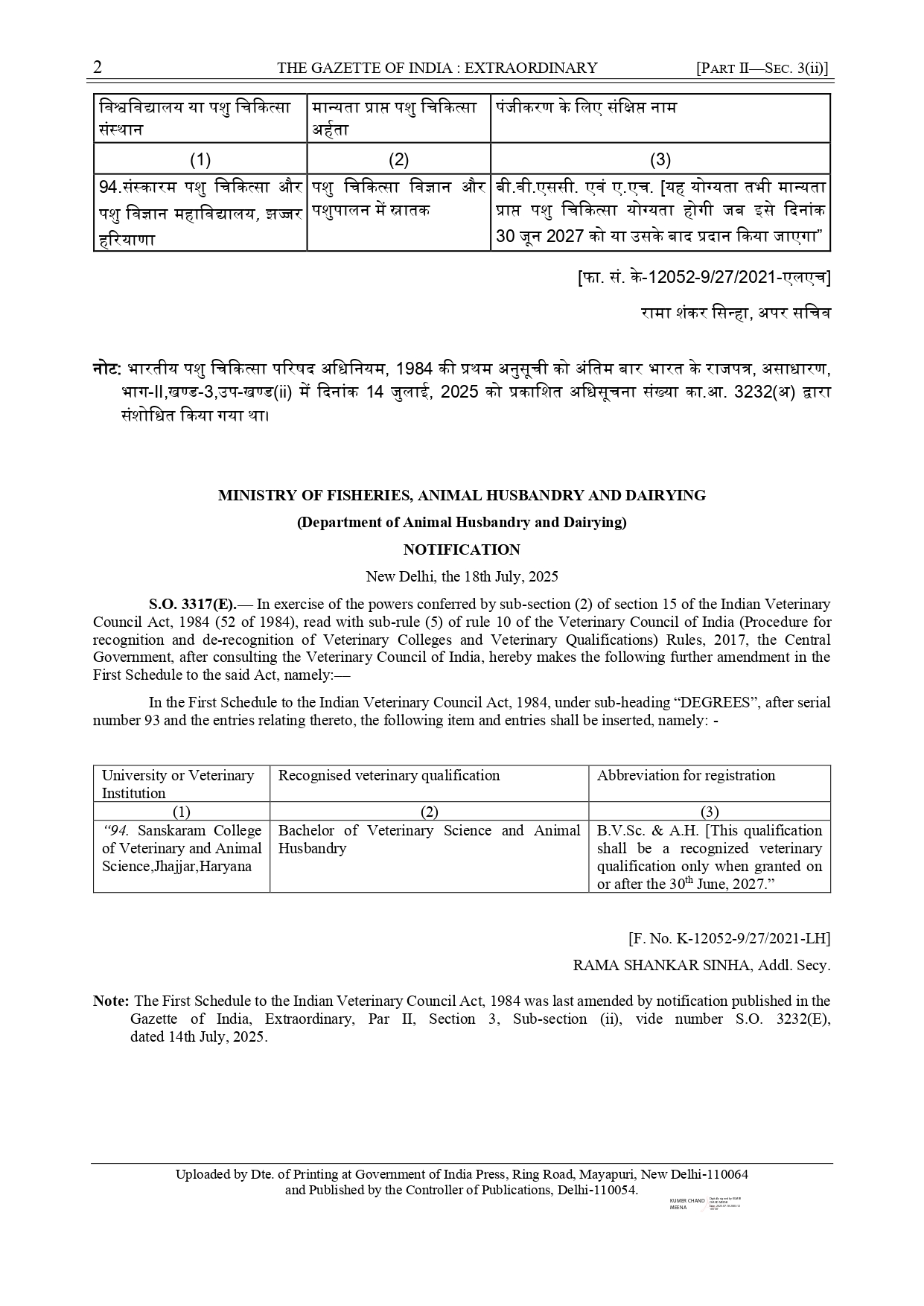Vission and Mission
Vision
Mission
• To develop and implement quality benchmarks for academic and administrative activities across all departments and colleges..
• To foster a learner-centric environment that promotes academic excellence, interdisciplinary learning, and outcome-based education.
• To ensure the integration of traditional knowledge systems like Ayurveda with modern scientific practices to promote inclusive and sustainable education.
• To promote innovation, research, and best practices through regular academic audits, feedback mechanisms, and stakeholder engagement.
• To facilitate capacity building and training programmes for faculty and staff aimed at professional development and pedagogical advancement./p>
• To institutionalize data-driven decision-making by establishing a robust internal academic and administrative monitoring system.
• To engage with national and international quality frameworks, accreditations, and rankings to benchmark the University’s performance with global standards.
• To encourage community engagement, social outreach, and sustainability practices in alignment with the university’s vision and national priorities.
About IQAC
Internal Quality Assurance Cell (IQAC) at SANSKARAM UNIVERSITY is responsible for all types of statutory compliances. The IQAC is meant for planning, guiding and monitoring Quality Assurance (QA) and Quality Enhancement (QE) activities of the University.
The primary aim of the IQAC is to develop a system for conscious, consistent and catalytic action to improve the academic and administrative performance of the institution. SPU has designed the C4 model to achieve the Quality standards in the university.
It is the nodal centre to build, ensure and develop the culture of quality assurance with appropriate structure, processes, and flexibility to meet the diverse needs of the stakeholders.
Goals and Objectives
To Develop a system for conscious, consistent and catalytic improvement in the overall performance of the institution.
Making “Quality Enhancement” as an integral part of the institutional functioning- internalization and institutionalization of quality enhancement initiatives.
To assure all the stakeholders the accountability of the institution for its own quality.
STRATEGIES
Evolve Mechanism and Procedure for:
- Ensuring timely, efficient and progressive performance of academic, administrative and financial tasks.
- The relevance and quality of academic and research programmes.
- Equitable access to and affordability of academic programmes for various sections of society.
- Optimization and integration of modern methods of teaching and learning.
- The credibility of evaluation procedures.
- Ensuring the adequacy, maintenance and functioning of the support structure and services
- Research sharing and networking with other institutions in India and abroad.
FUNCTIONS
- Development and application of quality benchmarks / parameters for the various academic and administrative activities of the institutions.
- Dissemination of information on the various quality parameter of higher education.
- Organization of workshops, seminars on quality related themes and promotion of quality circles.
- Documentation of the various programmes/ activities leading to quality improvement.
- Preparation of the Annual reports based on the quality parameters.
- Development and application of quality benchmarks;
- Setting Parameters for various academic and administrative activities of the institutions.
- Facilitating the creation of a learner centric environment conducive to quality education and faculty development to the required knowledge and technology for participatory teaching and learning process
- Collection and analysis of feedback from all the stakeholder’s quality related institutional processes.
- Preparation and submission of the Annual Quality Assurance Report (AQAR) as per the guidelines and parameters of NAAC.
- Periodic conduct of Academic and Administrative Audit along with their follow up activities
- Acting as a nodal agency of the institution for coordinating quality related activities, including adoption and dissemination of the best practices
- Documentation of various programmes/activities leading to quality improvement
- Organization of intra and inter institutional workshops and seminars on quality related themes and promotion of quality circles
Standard Operating Procedure (SOP)
Internal Quality Assurance Cell (IQAC)
- Introduction
The Internal Quality Assurance Cell (IQAC) is established as per the guidelines of the National Assessment and Accreditation Council (NAAC). IQAC plays a pivotal role in planning, guiding, and monitoring quality assurance and enhancement activities of the university and its constituent colleges.
- Objective of the SOP
This SOP outlines the structure, functions, and procedures for the smooth functioning of IQAC across all disciplines including Science, Technology, Engineering, Medical Sciences, Ayurveda, Physiotherapy, Allied and Applied Sciences, and others.
- Scope
This SOP applies to all academic, research, administrative, and support units of the university and its constituent colleges, ensuring a unified approach toward internal quality assurance and enhancement.
- Composition of IQAC
The composition of the IQAC, following with the members
Composition of the IQAC
|
Sl. No. |
Composition |
Designation |
Member’s Name |
|
1 |
Chairperson |
Vice Chancellor, SU |
Prof. (Dr.) Chander Prakash |
|
2 |
HoIs/Dean/Director |
1. Dean Academics 2. Dean & Professor 3. Dean & Professor 4. Dean & Professor 5. Professor |
|
|
3 |
Nominee from Management |
Nominee from BoM, SU |
Mrs. Shalu- Director HR |
|
4 |
Administrative Officers |
Registrar, SU |
Mr. Satish Kumar Registrar Prof. Dr. Md. Ehtesham Haider COE |
|
5 |
Nominees from: |
Local Society Representative |
Mr. Ashutosh ( BPT 2024) |
|
6 |
Nominees from Industries |
Industrialist(s) |
Dr. Prateek, Head Flexible Solar Department, P3C Technology and Solutions Pvt Ltd. |
|
7 |
IQAC Members |
Deputy Head IQAC |
Dr. Vishal Choudhry |
-
Roles and Responsibilities
5.1 IQAC Director/Coordinator
- Convene meetings and prepare agendas
- Monitor and review quality benchmarks
- Liaise with all academic and administrative units
- Prepare and submit statutory reports (e.g., AQAR)
5.2 Faculty Members
- Implement department-level quality initiatives
- Contribute to curriculum enhancement, research, and academic audit
- Promote student engagement and mentoring
5.3 Administrative Officers
- Support data management and compliance
- Facilitate documentation of processes
-
Standard Operating Procedures
6.1 Quality Benchmarking
- Define Key Performance Indicators (KPIs) across teaching, research, student support, and governance.
- Conduct Annual Quality Reviews for each department.
- Set targets and monitor progress using a centralized IQAC dashboard.
6.2 Academic Audit
- Conduct internal academic audits once per academic year.
- Review teaching plans, course files, student feedback, and assessment methods.
- Share audit findings with departments for corrective measures.
6.3 Feedback Mechanism
- Collect structured feedback from students, faculty, alumni, and employers.
- Analyze and disseminate actionable points to departments and administration.
- Implement follow-up actions within a defined timeframe.
6.4 Documentation & Record Maintenance
- Maintain records of all meetings, events, feedback, MoUs, FDPs, research activities, and best practices.
- Digitally archive AQAR, SSR, and compliance reports.
- Ensure data backup and confidentiality.
6.5 Event Quality Review
- Approve and monitor quality parameters for academic events (seminars, workshops, etc.).
- Collect event reports with attendance, feedback, and photographs.
- Promote inter-departmental and interdisciplinary participation.
6.6 Capacity Building & Training
- Organize regular FDPs, workshops, and seminars for teaching and non-teaching staff.
- Encourage exposure to emerging teaching-learning methods and accreditation norms.
6.7 Research & Innovation Promotion
- Support faculty and student research activities, IPR filings, and publication ethics.
- Facilitate collaborations and interdisciplinary research centers.
6.8 Compliance and Reporting
- Prepare and submit Annual Quality Assurance Report (AQAR) to NAAC.
- Coordinate with UGC, NIRF, AISHE, and other national/international bodies.
- Guide departments in preparing for NAAC/NBA accreditations.
-
Meeting Protocol
- IQAC shall meet at least four times a year.
- Notice of meeting to be issued 7 days in advance.
- Minutes to be prepared, circulated, and approved by Chairperson.
- Action Taken Report (ATR) to be submitted in the next meeting.
-
Review and Improvement
- SOP shall be reviewed annually for relevance and updates.
- Feedback from stakeholders will be considered for improving the SOP.
UNIVERSITY EVENT REPORT TEMPLATE
(To be submitted to IQAC Office)
- Cover Page
- Name of the Event:
- Organizing Department:
- Date of Event:
- Venue:
- Event Category: (Academic / Co-curricular / Cultural / Outreach / Workshop / FDP / Others)
- Prepared by:
- Designation:
- Date of Submission:
- Event Circular / Notice (Attach copy)
Official circular or notice issued regarding the event, including date, time, venue, target audience, and mode (online/offline/hybrid).
- Event Flyer / Brochure (Attach copy)
Designed flyer or brochure used for publicity and awareness of the event.
- Objectives of the Event
- Clearly mention the purpose and goals of the event.
- Relevance to the academic or institutional framework.
- Expected outcomes.
- Brief Summary of the Event
A concise narrative of the event covering:
- Inauguration details
- Key speakers or guests
- Schedule and sessions
- Participation overview
- Highlights and key takeaways
- Photographs of the Event (Attach 4–6 high-resolution photos)
Include photographs of:
- Inauguration
- Guest/speaker sessions
- Audience/participants
- Interactive/engagement moments
- Group photo (if applicable)
- Attendance Record (Attach duly signed attendance sheet or extract from online tools such as Google Form / Zoom / MS Teams)
Provide a table or attachment that includes:
- Name of Participant
- Designation/Institution
- Email ID
- Contact Number
- Signature (for offline)
- Feedback Summary
- Mode of Feedback Collection: (Google Form / Printed Form / MS Forms, etc.)
- Total Responses Received:
- Feedback Highlights:
- Quality of Content
- Speaker Effectiveness
- Relevance to the Theme
- Suggestions for Improvement
- (Attach sample feedback form and a few anonymized responses if available)
- Outcomes / Deliverables
Describe any tangible or intangible outcomes of the event, such as:
- Skill enhancement
- Knowledge gain
- Policy recommendations
- Student engagement
- Certificate distribution (if applicable)
- Suggestions & Future Scope
Recommendations based on feedback and observations.
Scope for scaling or improvement in future events.
- Annexures
Please attach the following (as applicable):
- Copy of Circular / Invitation
- Event Flyer / Brochure
- Attendance Sheet (signed or digital)
- Feedback Form (blank and responses summary)
- Certificates Issued (sample, if applicable)
- Media Coverage / Social Media Links (if any)
- Relevant Documents
Signature:
Name:
Designation:
Department:
Date:





 VIEW
VIEW

